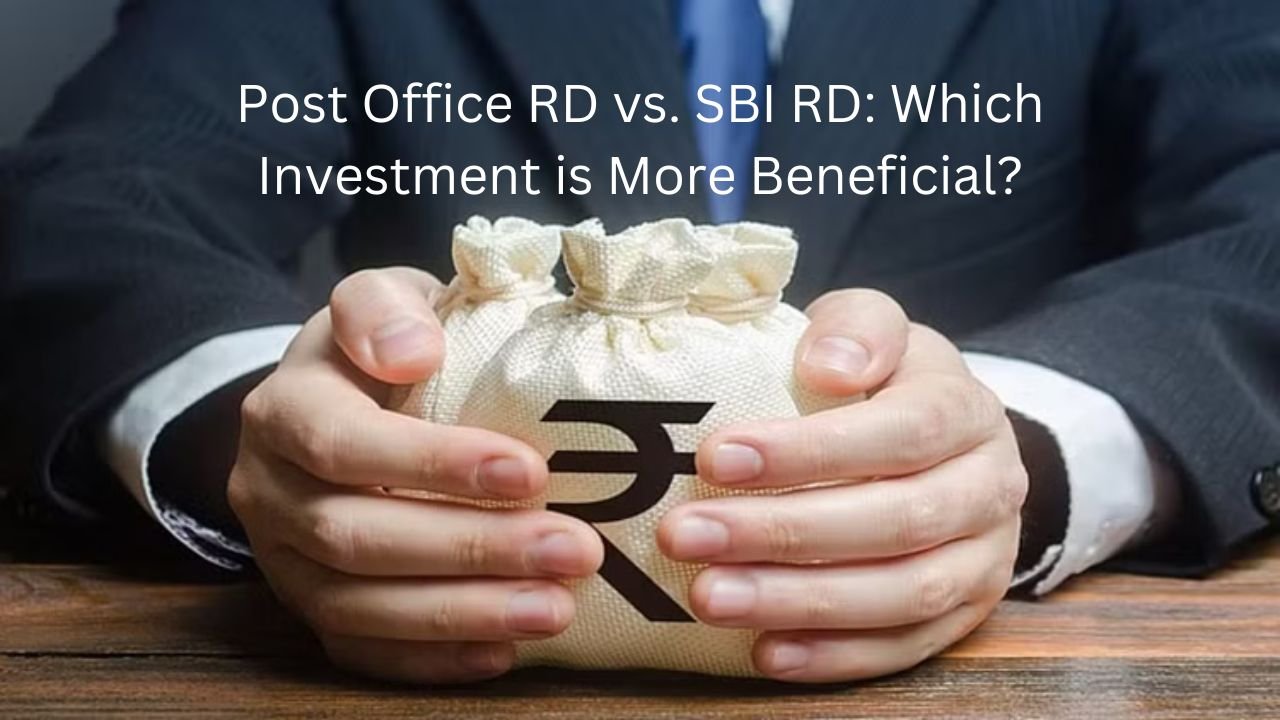Post Office RD vs. SBI RD: Which Investment is More Beneficial? : Both Post Office Recurring Deposit (RD) and SBI RD are popular options that allow you to invest a small amount regularly. These plans are particularly suitable for investors seeking safe and fixed returns. Let’s explore which scheme might be better for you.
What is a Recurring Deposit (RD)?
A Recurring Deposit (RD) is a scheme where you need to deposit a fixed amount every month and earn interest on it. It works like a savings jar, where small amounts accumulate into a significant sum. You can open an RD in banks for a tenure of 1 to 10 years, while a Post Office RD must be opened for a minimum of 5 years.
Post Office RD: Interest Rate and Returns
- Interest Rate: 6.2% (effective from April 1, 2024)
- Investment Tenure: Minimum of 5 years
- Minimum Investment Amount: Starting from ₹100
Example: If you deposit ₹2,000 monthly for 5 years, your total investment will be ₹1,20,000. At an interest rate of 6.2%, you will earn ₹20,866 in interest, resulting in a total return of ₹1,40,866.
SBI RD: Interest Rate and Returns
- Interest Rate: 7% for 1 to 3 years; 6.5% for 5 to 10 years
- Investment Tenure: 1 to 10 years
- Senior Citizens: Additional 0.5% interest
Example: If you invest ₹2,000 monthly in SBI RD for 2 years, your total investment will be ₹48,000, earning ₹3,641 in interest at 7%, bringing your total to ₹51,641. For a 5-year investment at 6.5%, if you invest ₹1,20,000, you will receive ₹21,983 in interest, totaling ₹1,41,983.
Where Will You Get More Benefits?
- Post Office RD: After 5 years, you will receive ₹1,40,866 at a 6.2% interest rate.
- SBI RD: After 5 years, you will receive ₹1,41,983 at a 6.5% interest rate.
Conclusion
If you plan to invest for a longer duration, SBI RD offers slightly higher returns due to its 6.5% interest rate compared to the Post Office’s 6.2%. However, if you prefer a safe, long-term investment, the Post Office RD is a better option, especially if you like investing in guaranteed government schemes.
Ultimately, both options can be beneficial based on your investment preferences.

